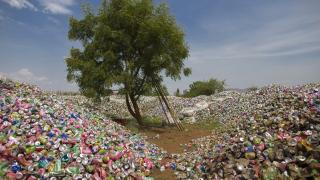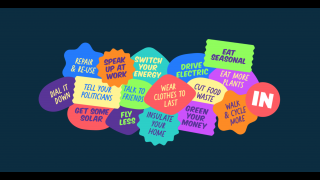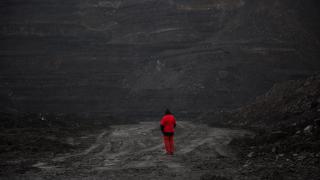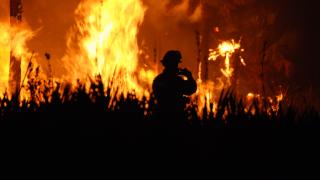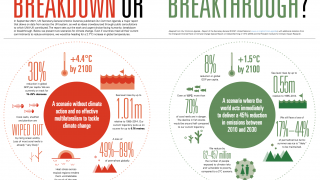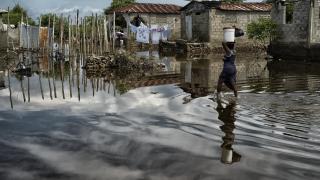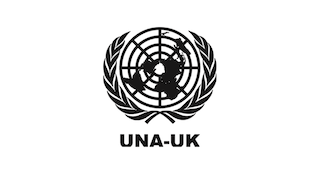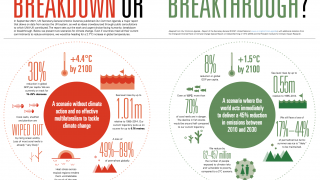
In September 2021, UN Secretary-General António Guterres published Our Common Agenda, a major report that draws on data from across the UN system, as well as ideas crowdsourced through public consultations to which UNA-UK contributed. The report sets out the stark and urgent choice facing humanity: breakdown or breakthrough. Below we present two scenarios for climate change. Even if countries meet all their current commitments to reduce emissions, we would be heading for a 2.7°C increase in global temperatures.
Breakdown: A scenario without climate action and no effective multilateralism to tackle climate change
- 4.4°C increase in global temperatures by 2100
- Sea levels rise by up to 1.01m relative to 1995–2014. Our current trajectory puts us on course for up to 0.76 metres
- A loss of 49-89% of permafrost globally
- Heat stress across tropical regions renders them uninhabitable for much of the year
- Coral reefs, shellfish and plankton are wiped out by rising ocean acidity. Loss of most coral reefs is already “very likely”
- 30% reduction in global GDP per capita. We are currently on track for 15–25% decrease.
Breakthrough: A scenario where the world acts immediately to deliver a 45% reduction in emissions between 2010 and 2030
- 1.5°C increase in global temperatures by 2100
- Sea levels rise by up to 0.55m relative to 1995–2014
- Still face a loss of 17-44% of permafrost, but summer sea ice is "likely" to be maintained
- We reduce by 62–457 million the number of people exposed to climate risks and vulnerable to poverty, compared to a 2°C scenario
- Even at 1.5°C, more than 70% of coral reefs are in danger. The decline in fish stocks would be around half compared to our current trajectory.
- 8% reduction in global GDP per capita
Adapted from Our Common Agenda – Report of the Secretary-General © 2021 United Nations (www.un.org/common-agenda), with additional statistics from the Intergovernmental Panel on Climate Change Special Report on Global Warming of 1.5oC (2019) and the Potsdam Institute for Climate Impact Research.




